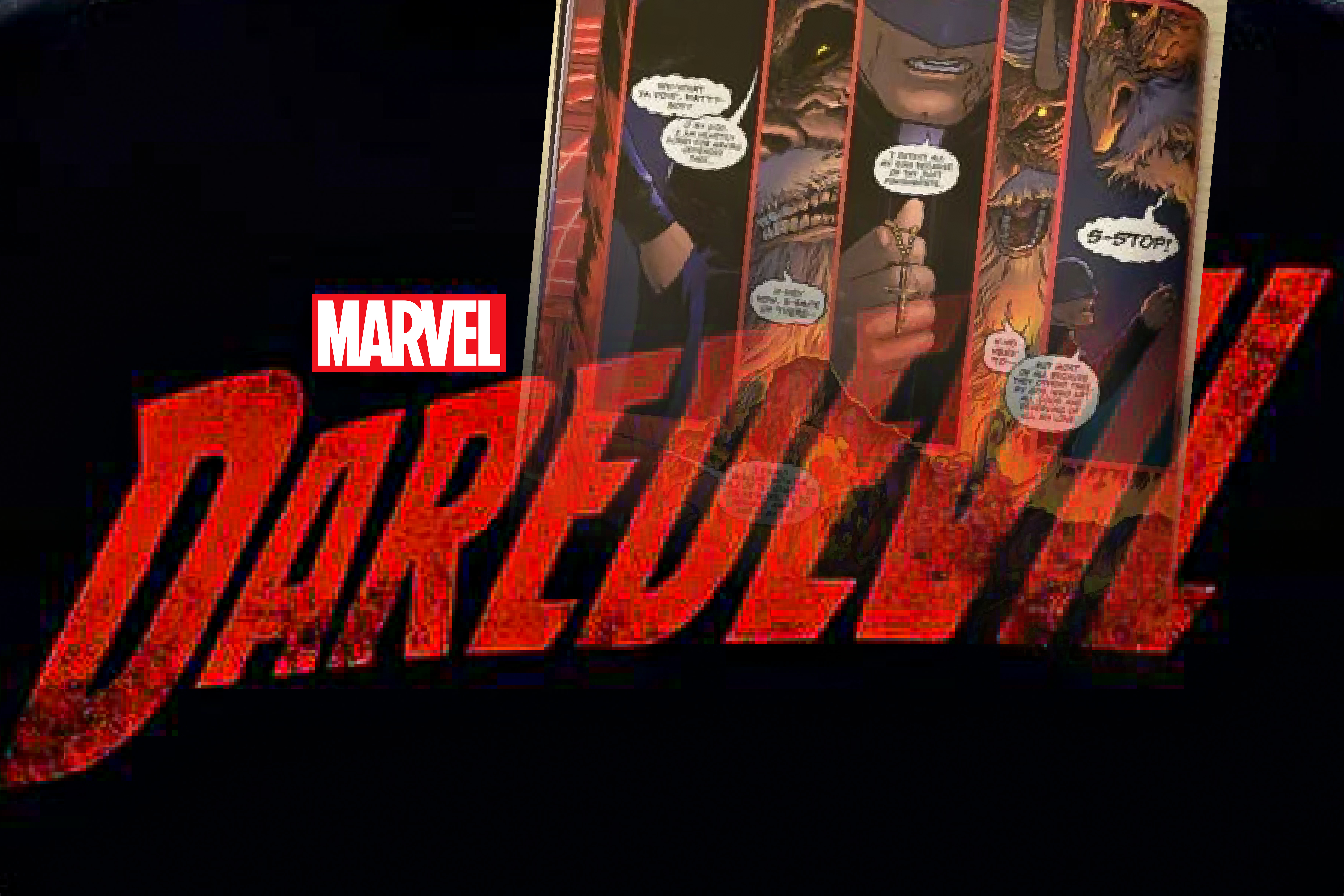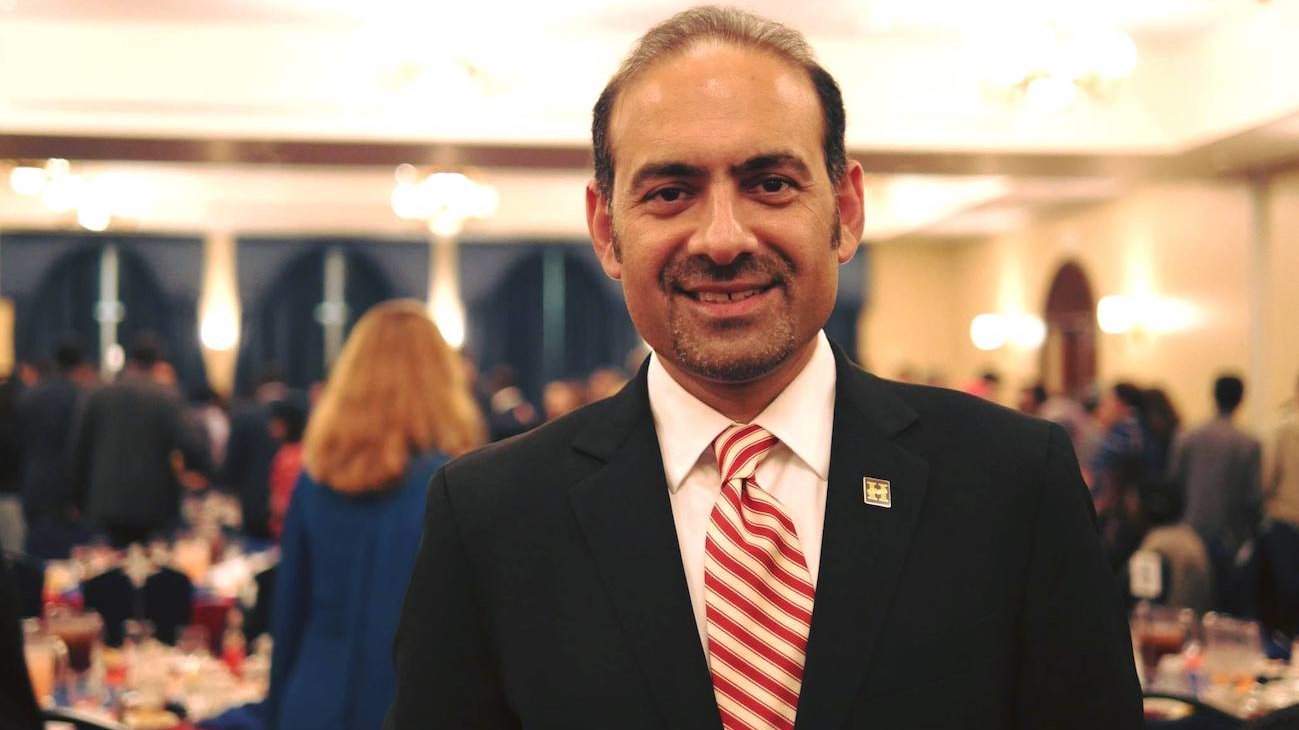
-
HOME
-
WHAT IS STANDOur Mission Our Values Our Help Contact
-
WHAT WE FIGHT FORReligious Freedom Religious Literacy Equality & Human Rights Inclusion & Respect Free Speech Responsible Journalism Corporate Accountability
-
RESOURCESExpert Studies Landmark Decisions White Papers FAQs David Miscavige Religious Freedom Resource Center Freedom of Religion & Human Rights Topic Index Priest-Penitent Privilege Islamophobia
-
HATE MONITORBiased Media Propagandists Hatemongers False Experts Hate Monitor Blog
-
NEWSROOMNews Media Watch Videos Blog
-
TAKE ACTIONCombat Hate & Discrimination Champion Freedom of Religion Demand Accountability
Marvel’s Latest Villain Triggers Accusations of Antisemitism
The latest version of “Daredevil,” a reboot of the popular comic series about the exploits of a blind superhero, has elicited anger and outrage from scholars of various faiths.

In this month’s relaunch, Daredevil is a New York City Catholic priest whose secret identity is Matthew Murdock. His adversary is a nameless monster with long horns, a beaked nose and a white beard which, according to critics, is dog-whistle antisemitic imagery.
“This illustration draws from an ancient tradition of demonizing Jews in literature and art to portray a clash between good and evil,” said Malka Simkovich, director of Catholic-Jewish studies at Catholic Theological Union in Chicago.
“The hooked nose and the beard, as well as the weathered and wrinkled forehead, suggest that the antagonist in question is a demonic rabbi.”
“One might have hoped that the comic’s creators would have been wary of playing with such hateful imagery.”
Philip A. Cunningham, director of the Institute for Jewish-Catholic Relations at Saint Joseph’s University in Philadelphia, said: “When I first saw the illustration of Daredevil’s opponent … I was immediately struck by his resemblance to posters advertising a Nazi propaganda film called ‘Der Ewige Jude’ (‘The Eternal Jew’),” he said. “One might have hoped that the comic’s creators would have been wary of playing with such hateful imagery in these days of unabashed antisemitic rhetoric.”
To make matters worse, as Simkovich points out, in the climactic battle between hero and villain, Daredevil defeats his enemy with a prayer and a cross—the adversary’s Semitic features contorted in a large snarl.
Rabbi A. James Rudin, who recently became the first rabbi granted a knighthood by Pope Francis, weighed in on the imagery with one word: “Repulsive.”
“Daredevil” artist Aaron Kuder characterized the antisemitic labeling of the villain as “completely laughably insane. Also extremely and utterly insulting.”
This is not the first time Marvel has been called out for messages of hate. In 2017 the company removed images from “X-Men Gold” #1 after fan complaints of antisemitic and anti-Christian dog whistles. Four years later, Marvel removed an antisemitic panel depicting a jewelry store with the name “Cronemberg Jewery” [sic] with a reverse Star of David in the window and the word “Jewelry” misspelled as “Jewery”—an image of which a comic book site said, “[The] only conceivable interpretation, to put it frankly, is that this is a visual play on the old and antisemitic trope of Jews running the diamond business.” It described the panel as “an incredibly overt antisemitic dog whistle.”
The artist responsible for that image later apologized.
The nearly century-old superhero comic book genre has its roots as a response to the antisemitism of the 1930s and 1940s. Jewish artists and writers, facing closed doors in the publishing world, created their own industry. Superman was the brainchild of Jerry Siegel and Joe Shuster, the sons of Jewish immigrants. Batman first flowed from the pen of Bob Kane (né Kahn) an Ashkenazi Jew. “Daredevil” itself owes its existence to Jewish editor Stan Lee (né Leiber), who co-created it with artist Bill Everett, a Christian. As comic book expert Roy Schwartz observed, “Superhero comics are fundamentally Jewish literature.”
As Marvel remains silent on this latest Daredevil complaint, Simkovich worries that the subliminal anti-Jewish messaging will continue.
“Readers who scan these pages will become inculcated and inured to antisemitic tropes without even knowing that it’s happening,” she said. “They will become desensitized to situations in which such demonization presents an immediate danger to the health and wellbeing of Jewish people.”






